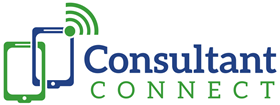The solutions in the interim people plan will take time to show results but in the meantime technology can help healthcare professionals work more effectively right now, argues Jonathan Patrick
The staffing crisis in the NHS has been building for quite some time. Finally, though, the interim NHS people plan has been published. Importantly, it doesn’t shy away from the scale of the problem.
Sponsored by
We need more healthcare professionals, we need them to be able to work efficiently, and we need them now.
The challenge, though, is that most of the solutions set out in the plan will take time, a lot of time, before they have an impact on the front line.
Changes in medical training will probably take over a decade to have an impact. Plans to increase recruitment are yet to yield results.
Is it hopeless? No – the plan recognises that new technology will bring opportunities for healthcare professionals to work better and smarter. Some of these gains are a way off, some of them are here already.
For example, the National Consultant Network – which is run by Consultant Connect – takes advantage of the fact that specialists can answer telephone advice and guidance calls anywhere.
Consultants with childcare obligations or other personal commitments can still offer advice to GPs when they can’t be in hospital. It’s a better, more modern way of working
Consultants with childcare obligations or other personal commitments can still offer advice to GPs when they can’t be in hospital. It’s a better, more modern way of working that means fewer people will feel they have to abandon their profession to do the right thing by their families.
For most elective specialties it doesn’t matter where the advising consultant is based. You can make up for local shortages with available national clinicians.
For example, if you’re a GP based in Manchester, you can speak to a neurologist based in London. Your local clinicians see local patients whilst “remote” specialists pick up the advice and guidance.
It’s better for clinicians and patients. And, in the long run, it will help deliver the people plan.

The impact of networks in supporting primary care

To bridge the divide between primary and secondary care, a CCG has rolled out a new advice and guidance service that gives GPs access to a national network of consultants, reports Claire Read
- 1
- 2
 Currently
reading
Currently
reading
Technology can help healthcare professionals work smarter

































